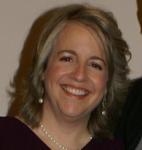
Child therapists in Jacksonville, North Carolina NC

Matt Vaughn
Licensed Professional Counselor, MA, LPC, LMHC
I have worked with children and adolescents in a therapeutic setting since 2001.
Dr. Traci Williams
Psychologist, PsyD, ABPP, CFT-I
I help kids and teens navigate difficulties including anxiety, depression, trauma, behavioral problems, and learning disabilities. I work closely with parents, teachers, and other caregivers to ensure that your young ones receive the support they need to thrive.
Dr. Christina A Remek
Psychologist, Psy.D.
I can relate to children and adolescents to help them manage their stress, frustrations, and hardships that are experienced in their youth. I work particularly well with adolescents and establishing a strong therapeutic alliance can help them to feel comforted and safe to discuss difficult topics.
Dr. Rebecca Fleischer
Psychologist, Licensed Clinical Psychologist
As a licensed clinical psychologist for 20+ years, I understand that the relationship and "fit" between client and therapist is paramount. I work hard to establish and maintain a relationship based on mutual trust and honesty. We can work together to help you feel less stuck, and more in control.
Strides in Psychotherapy
Psychologist, PSY.D.
Usually, when people think about psychotherapy, they imagine sitting on a couch in an office talking to a therapist about their problems. This style of therapy works just fine for many adults and adolescents. However, most younger children express themselves better through play than through words—for them, play is a primary method of communication. Even very bright and highly verbal children may find it difficult to talk about situations when strong feelings are involved. This is why they might shrug their shoulders, refuse to answer or say “I don’t know” when asked what is wrong. They might also “act out” or try to communicate to you through their behavior rather than through words, and sometimes these behaviors can get them into trouble at home or at school or be misunderstood by those around them. In addition, children often find it hard to sit still and talk for 45 minutes in a row, and they enjoy coming to therapy much more when play is a part of the equation.





